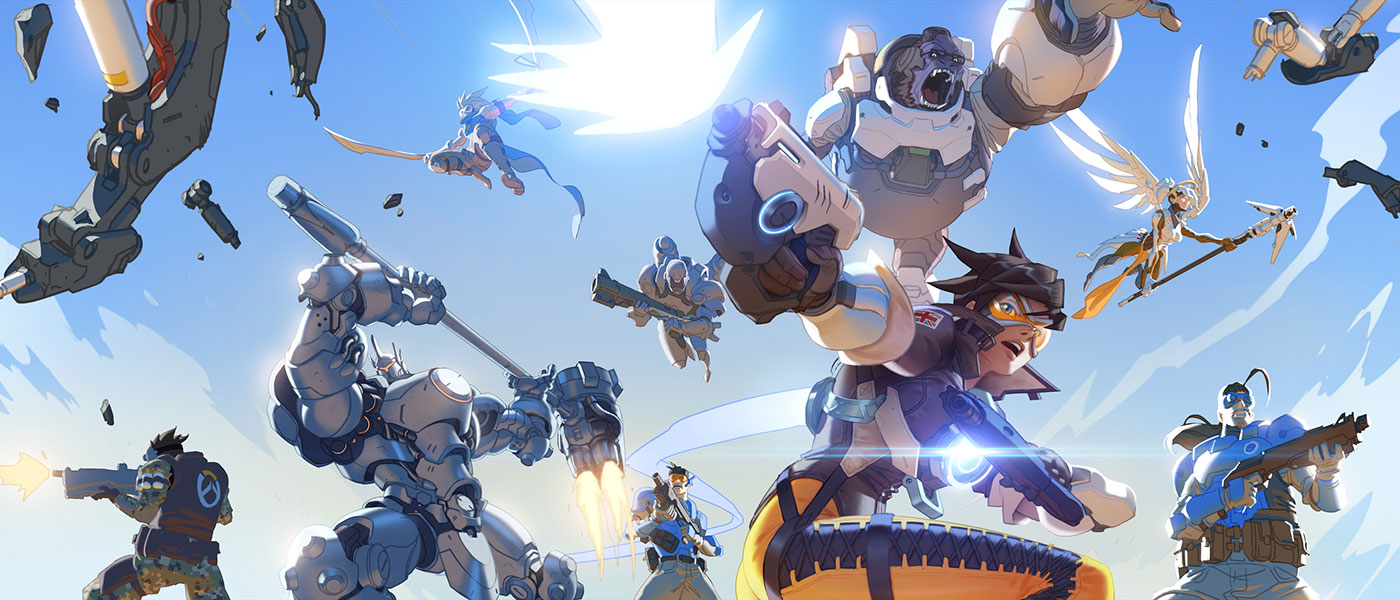
This year marks the second year that The Games Awards have celebrated an ‘Ongoing game’ award, beginning last year and being won by Overwatch, to recognise “A trend towards games that continue to entertain long after their release and continue to grow and evolve with their players”, as last years presented made out on stage. It’s an award that makes notice of the trend to games as a service, and celebrates titles that have made the change, and used it as central to their model.
You’re free to vote for whichever of the nominees you want to win at The Games Awards – you can do that here.
Overwatch’s competition last year was Destiny 2, Grand Theft Auto Online, Player Unknown’s Battlegrounds, Rainbow Six Siege and Warframe. For most of these, one only needs to head over to the Steam Stats Page to see how widely popular they still are, just on PC, with Destiny 2 and Rainbow Six Siege being nominated alongside Overwatch for 2018’s Ongoing game award.
But what makes an ‘Ongoing’ game worthy of nomination?
It’s difficult to determine – one might argue that to some extent, some of the nominees to the award have been done so unjustly. One might argue that Destiny is the weakest link up against its rivals. It’s difficult to determine the player-base of Destiny 2, as it doesn’t have published player counts, but there are some indicators – despite updates being constant, it melts into the background on Twitch, with only 9,026 viewers at the time of writing, compared to its rival nominees, which are in the 10’s of thousands – Warframe being the highest at 80,696.
Another might argue that Grand Theft Auto Online’s nomination is somewhat uncalled for; despite player counts being incredibly high on PC, 23,393 on Steam at the time of writing, updates to the game are somewhat out of pace with the desires of the community – high prices for new properties and vehicles are a massive turnoff with the community, and the game is out of step with the philosophy of Grand Theft Auto, with a great emphasis on grinding.
The same stuff can be argued against Overwatch. Blizzard doesn’t publish live player stats for the game, and despite having a high Twitch viewership, from a competitive stand point, the direction of the game has drastically changed, as outlined by community figure and former Dallas Fuel player Brandon Larned, or Seagull.
But if we go by player-counts and quality of updates, then it has to go to Fortnite, right? Being as cross-playable as it is, with regular updates, and content like being able to thank the bus driver, they’re pretty in-step with their community, with 157,457 viewers at the time of writing. Fortnite has been nominated this year, for its monumentally successful Battle Royale mode, which has completely wiped the table across a range of Battle Royale titles, including SOS and Radical Heights, interesting takes on the genre with reality TV show themes respectively.
Should titles like World of Warcraft and Old School Runescape, however, be recognised for their dedication to their fans? Jagex’s recent release of Runescape Mobile brought in waves and waves of support, and World of Warcraft will soon have a classic variant in the vein of the late Nostalrius, a community project rebooting the vanilla game. Perhaps games that don’t have large, game changing updates, like Garry’s Mod and several Valve titles like Portal 2 and Left For Dead 2, which receive regular support updates, should be recognise – their developers haven’t left their games to wither and die as they move on to the next project.
It seems like an ill-deemed award at this time, and perhaps titles like Fortnite and Overwatch are worthy of receiving the award; their dedication to their user base is worthy of celebration, adding content without a price tag, however it seems like the award is wrapped up in an idea of wider popularity over industry recognition, which is the focal point of the ceremony.
Perhaps there is a place for another award to celebrate the older games, which are still massively popular, and celebrated, supported and maintained by their developers, without grandiose plans and intentions for their directions; perhaps it could tap into grass-roots projects to maintain games, like with Warcraft III, Garry’s Mod and Fallout: New Vegas, which each have massive hobbyist communities.
Maybe that’s idealist and far too nostalgic for an annual awards ceremony. Make sure you remember to vote for your favourite games! You can do that here.
